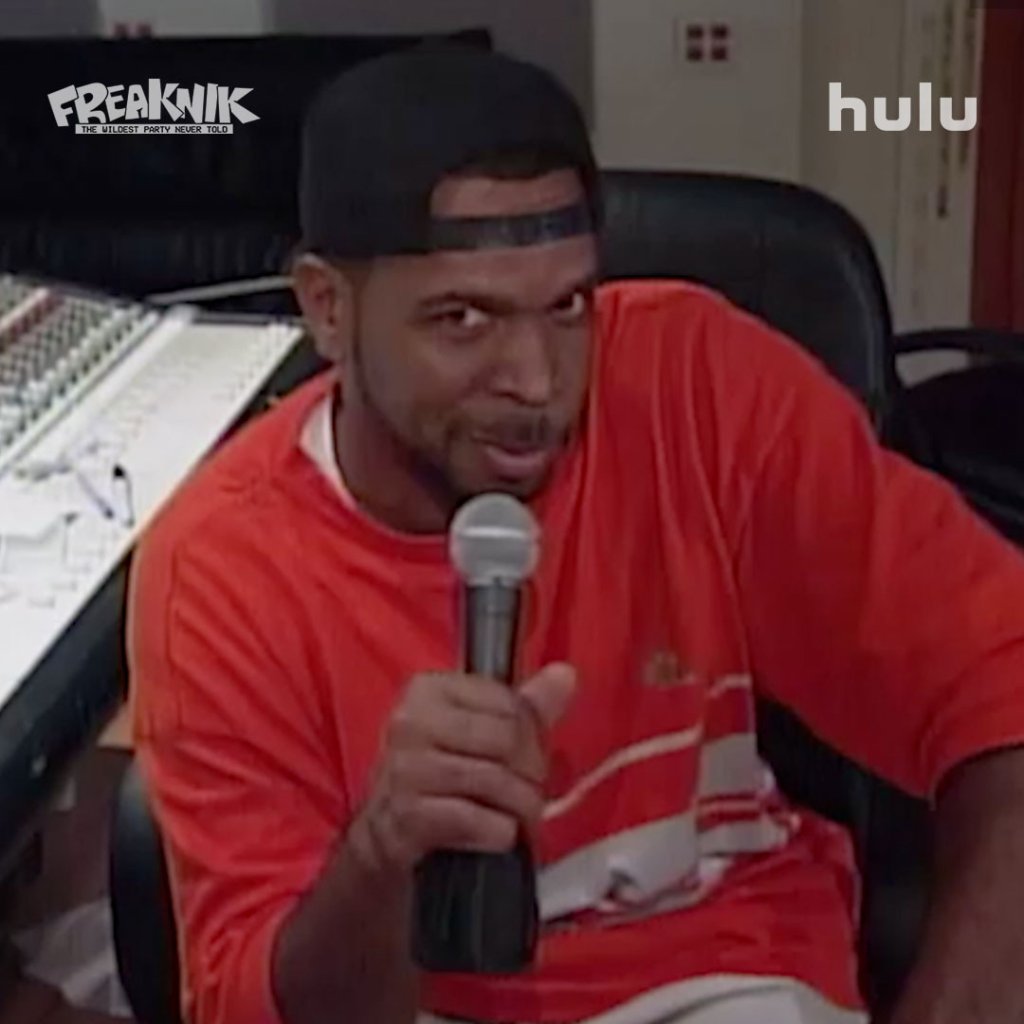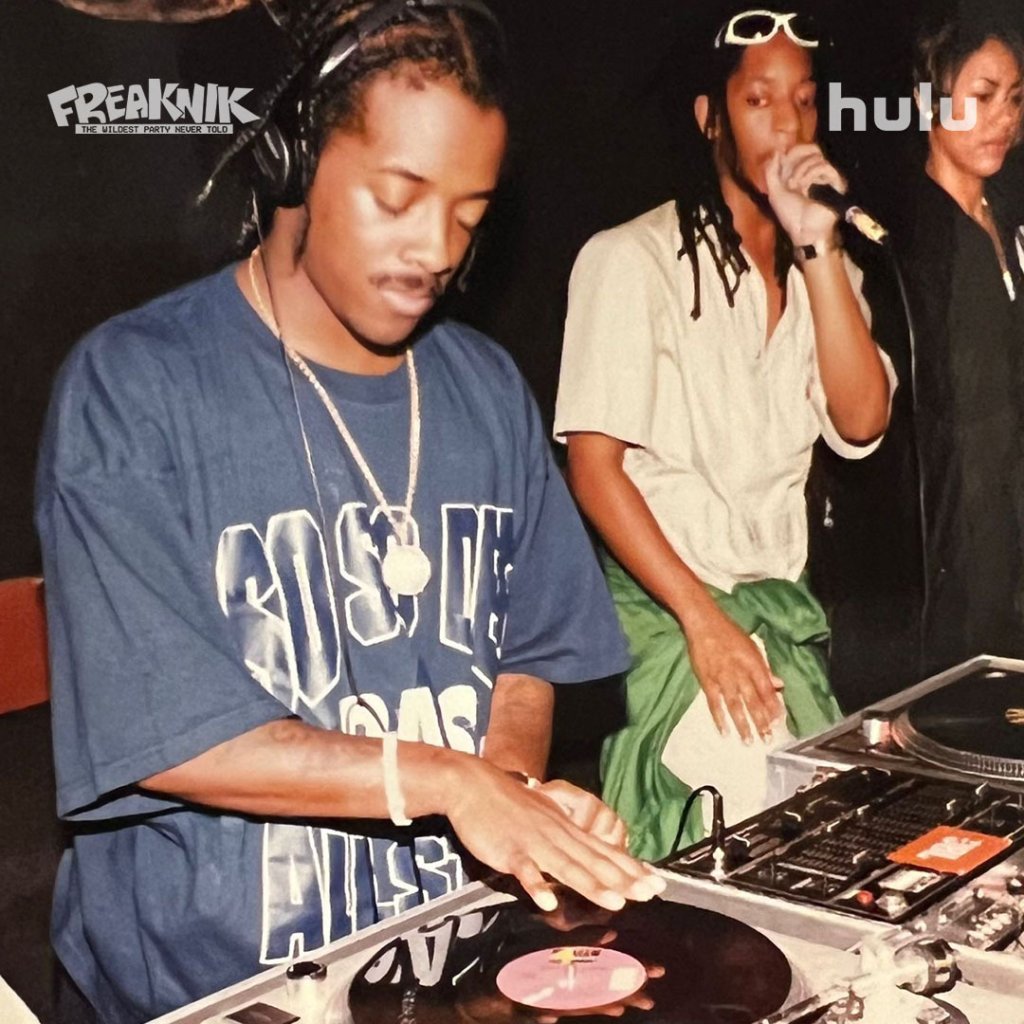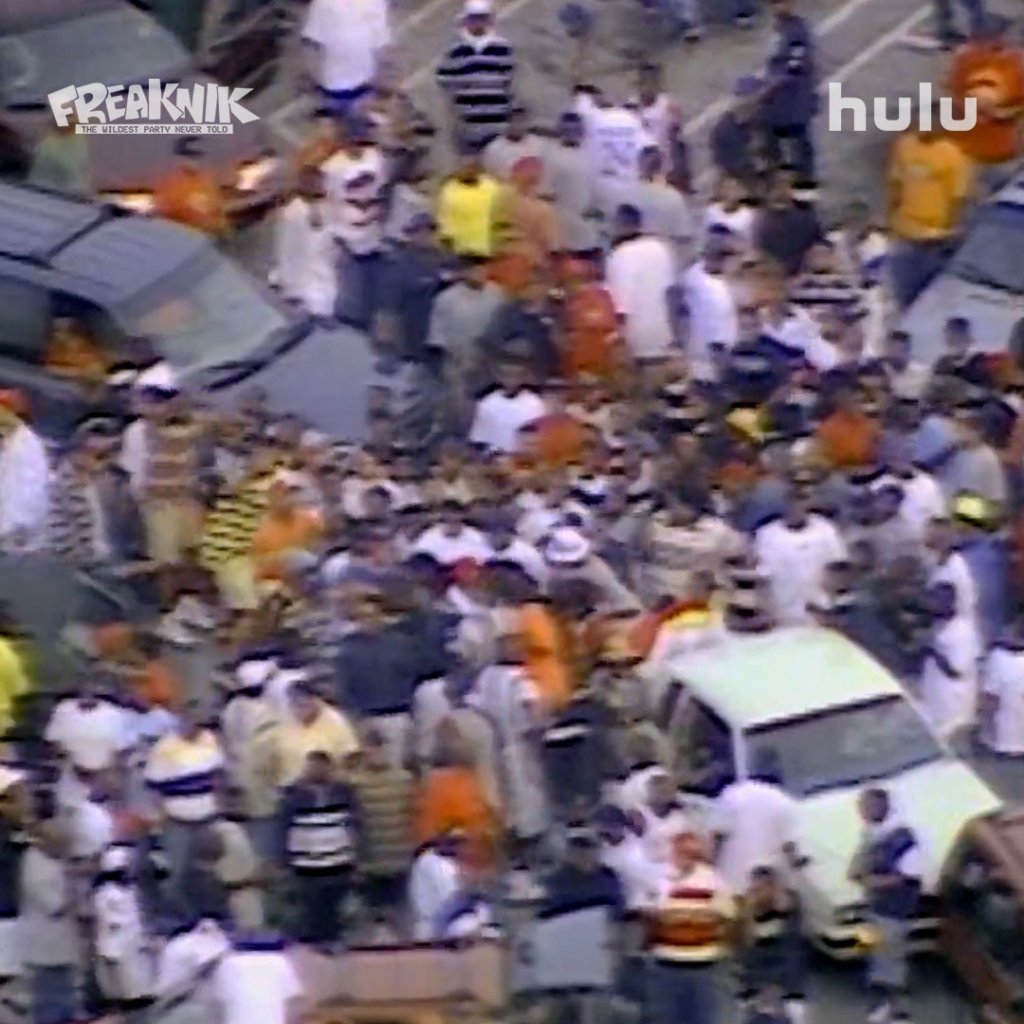Source: Hulu / hulu
HipHopWired had the exclusive opportunity to speak with the filmmakers behind the highly anticipated Hulu documentary, Freaknik: The Wildest Story Never Told.


Source: Hulu / hulu
For those in the know, Freaknik wasn't just a party that brought together nearly every black person in Atlanta, Georgia, every spring, it was a true cultural moment. When news broke late last year that there would be a Freaknik documentary, many immediately wondered if it would only focus on the wildlife associated with the event.
But to Freaknik: The Wildest Story Never Toldwe have a clear and compelling account of Freaknik in all its facets, thanks to the testimony of many people, including Jermaine Dupri and Luther “Uncle Luke Campbell” (who are executive producers), Lil Jon, 21 Savage and more.
HipHopWired had the opportunity to speak with producers Jay Allen, Nikki Byles and executive producer Terry “TR” Ross about their experiences making this documentary and their perspective on Freaknik as it premieres on March 21st at Hulu.
HipHopWired: How did this documentary project land on your radar and how did you all get involved?
Jay Allen: So me and Nikki were a few years younger, and we didn't get to watch Freaknik. But we always heard the Freaknik stories from family, cousins and friends. Because we live in Atlanta, we always talk about what it would be like to be there. And then we realized we wanted to really tell the story. So she and I made a pitch. We collect a sizzle [reel], we have it all together. And then we were trying to figure out what the next steps were. The first thing Nikki did was, she called and got Uncle Luke involved.
Nikki Biles: I just happened to turn to someone and I said, “Hey, I need Luke and please let me talk to him.” And so based on that, we ended up telling him what we wanted, and he ended up flying to Atlanta to meet with us. And after we went over everything, he said, “Yes, I'm on board. Let's get it.” Then we talked to Terry, JD added [Jermaine Dupri]. Because you definitely need both. And sought out the Freaknik ambassador. And you need JD for the music.
Terry “TR” Ross: Well, not only that, but you need JD because he's one of the most pivotal people in Atlanta right now. So we needed him for that too, not just for the music. I mean, they call him the “mayor of Atlanta.”


Source: Hulu / hulu
Jay: Terry helped us fill in some of the gaps. So we went to LA, sat down in the studio with Terry and just talked to him about our vision. And we told him we had Luke and that's what we're trying to do. And since then, Terry has jumped in and really helped us develop this thing, and also that we could start bringing it to market.
Type of cloth: So basically they brought it to me. And I was extremely interested. I thought it was exciting. Because first and foremost, that was the reason I moved to Atlanta, it was because of Freaknik. I had (Mayor) Kasim Reed – who I went to Howard with in DC, and I was from DC – Kasim Reed, he's an Atlanta native. And he said, “You have to come to Atlanta for this thing called Freaknik.”
And we had never heard of it, so we decided to go to Atlanta and did this huge Freaknik gig. And after that, it was like, “Yeah, I want to live here. I want to move here.” And so we decided to move there. This has come full circle because this is my first film project. Freaknik was the reason I moved to Atlanta and Freaknik was the first film project I did that was really amazing.
When Nikki and Jay brought it to me, I said, “This is something that needs to be told, because the story has never been told the right way.” I said we need to get people who have been to Atlanta to make the documentary where people are authentic and really want to get into it. So me, Nikki and Jay met up with JD, met him at a Starbucks.
Jay: I want to emphasize how we met him at Starbucks. We met him outside a Starbucks where Nikki was sitting on the ground typing everything. Me and Terry were peppering him with questions, and it was in the middle of COVID and JD had like four masks. (Laughter) This all happened in the middle of Atlanta in the middle of COVID.
Type of cloth: So we decided it would be better, you know, to get some of the tasters in Atlanta and start interviewing them. Who did we interview first, Chaka (Zulu)?
Jay: First was Chaka after JD?
Nikki: Yes, because we had to bring them all while TR was there.
Jay: Yeah, I think we had Kasim, Too Short, Kenny Burns –
Nikki: For some reason, I remember talking to Mannie Fresh. (laughs)
Jay: There were a lot of people in there, yes. (laughs)
Type of cloth: KP and Shanti Das, who was very instrumental in breaking OutKast because they broke in Atlanta during Freaknik. It was at LaFace [Records]. Rico Wade of Dungeon Family & Organized Noise.
Jay: You are the only one who understands this story. No one else has asked this, so just know that this is exclusive here. (laughs)
HipHopWired: So in terms of the interviews and the experience of taking testimonies from the people who attended and those who were in the opposition – what was that experience like talking to everyone and getting their memories?
Jay: Before or after we started filming? Because these are two different sets.
HipHopWired: Then, because as you said with the teaser, there were those who were kind of wondering, “Well, what's going on? What will that be?'
Jay: I think when Terry talks about it – we weren't handing out checks for people to join it. Terry was actually picking up the phone. Nikki was actually picking up the phone. And these people were coming to sit down and talk and tell us their Freaknik stories and help us put it together. For love. For the love of the people related to him. And that's how we managed to put the story together.
Type of cloth: Everyone's story was different, especially Too Short, Lil Jon and of course JD. Because JD wasn't even old enough to go to Freaknik, so he was just hanging out in the parking lot and just handing out his tapes. And that's how Shanti said that they broke OutKast, because they had these tapes that made them pass out, and then people would play them in their cars. Because there was nowhere to go, you couldn't move. (Laughs) So they would pop the tape in and just go up and down the street and people would bang OutKast.
Jay: And these are people who are legends now, like Shanti. Yes, she is one of the biggest women in musical entertainment. Kasim Reed was just a freshman law student back then, and Kasim literally explains to us how government worked back then. One thing that didn't make it into the documentary that was extremely interesting is how important Southwest Atlanta was to all of this coming together. And it was a really incredible story. Because Shanti, Kasim – there's a group of mayors who all come from Southwest Atlanta. And they really just ruined the story. So you're literally seeing the people who are the biggest leaders in their fields – from music to executives to politics – really being at the forefront of what Freaknik was and became.
HipHopWired: Based on that, how pleased are you with the reception you've had so far with this documentary, which shows such a cultural moment for Atlanta and the South as a whole?
Type of cloth: I always say this: Atlanta wouldn't be Atlanta without Freaknik. It wouldn't be the same. Freaknik made Atlanta what it is today. Hands down, no doubt. Because people from all over the country would come to Atlanta and then stay. So you started getting a bunch of black people from different parts of the country who came down and started having their own record labels. We built our label out of Atlanta, we had a label called Noontime.
We had Jazze Pha, Brian Michael Cox, Ciara and Latoya Luckett. All these people came from us. And then you had the standard LaFace, you had So So Def, and then you had Dallas Austin. And then you had the Dungeon family. Freaknik started to flourish because of all the different people coming to Atlanta and getting that culture because it was a whole different culture down there than any other city.
HipHopWired: If there is one – can you narrow it down to one – what was your favorite moment of all time making this film?
Nikki: My favorite moment, favorite of all time was Clay Evans. To interview him and talk to him about his time at Freaknik. I wish we could have shown his entire interview. How did it work? He was so crazy that day of the shoot. He wouldn't let anyone talk to him. I was the only one allowed to talk to him. No one else can look him in the face. Everyone refers to him in the third person. (Laughter) Yes, he sent me a two-page rider and informed me that he wanted oysters, but he's the only one doing the stinging. I didn't give anything. I gave him juice. And have a nice day.
Type of cloth: We cannot leave out a very important partner. And this is Alex Avant who was the son of Clarence Avant. I am good friends with him. Alex was instrumental in bringing Hulu to the table. So Alex also saw the vision.
Jay: And to comment on what TR said, my favorite movie moment isn't even a movie. What people don't know is with me, Nikki and TR, other people are in the mix. For me, Nikki and TR are at the forefront of this. And people know what we went through just putting together materials to present, to talk to people to convince, to tap into his whole network, TR tapping his whole network. And to see the big billboards in LA and New York and everywhere else from the idea that we were literally sitting around, like looking at each other like, “Are we crazy? Is a good idea;”
We're at South by Southwest and we're all looking at the crowd like, “Oh, we did it.” That was the moment for me where I was… you can't let people tell you you're crazy. We got rejection letters from people, people who told us this wasn't relevant and nobody cared about it. So, to have a billboard in Times Square in the middle of a promotion that broke the internet? It just makes me appreciate these people in this calling. I know we believe in ourselves and we kept pushing from day one. He never, ever hesitated. And we have to give some love to Tamara Knetchel. Tam connected us, she is an unsung hero.


Source: Hulu / hulu
